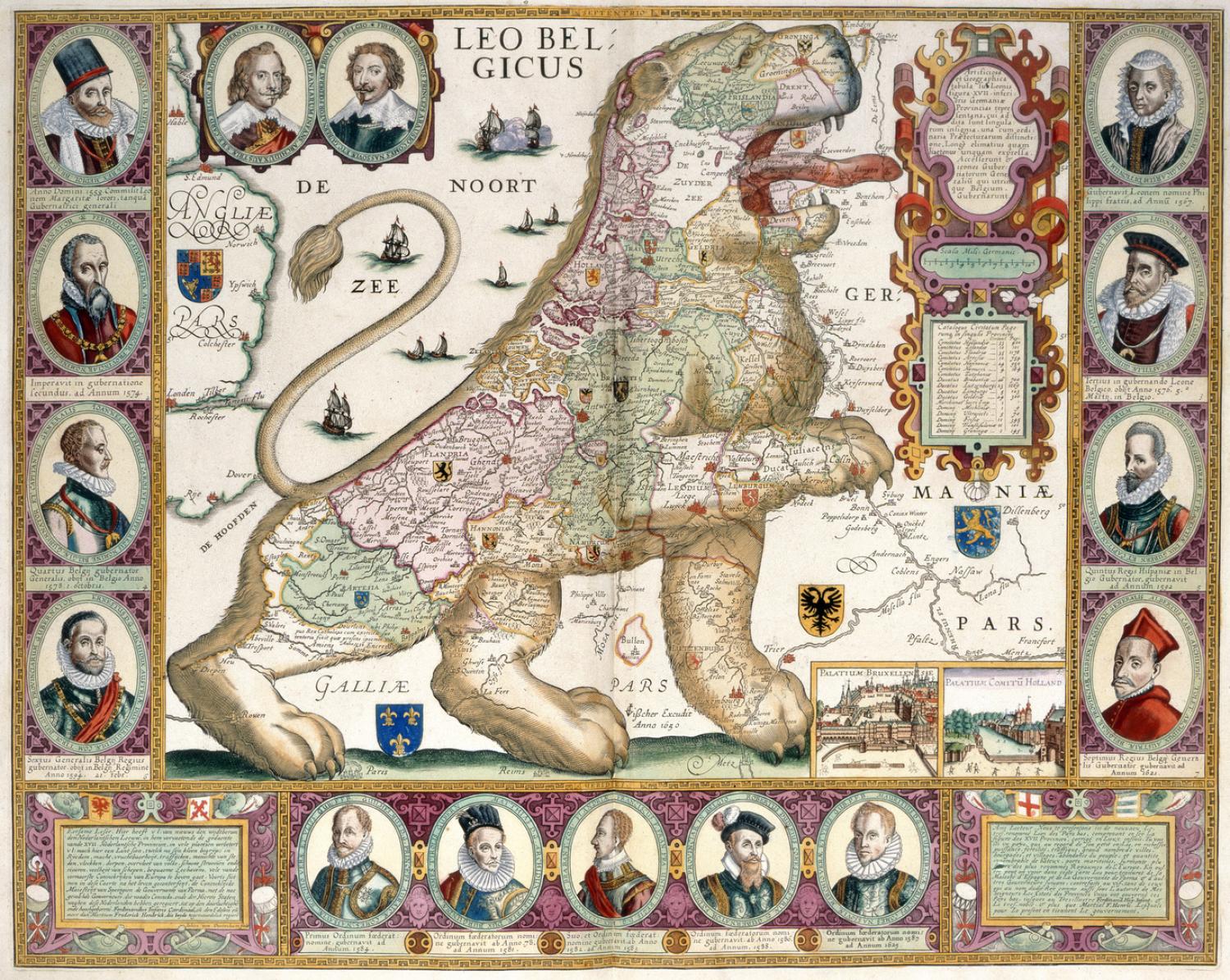Micro-credential Low Countries Studies
Beschrijving
Imagine: you move, for whatever reason, to a foreign country and suddenly find yourself part of a society you know nothing about. You are unfamiliar with its customs, history, culture... . A course to learn more about the country where you are staying would be welcome, wouldn't it? Low Countries Studies aims to reach those people who are finding themselves in this situation in Flanders and is, in other words, meant for people from abroad who want to get to know their new homeland. Of course, anyone wanting to learn more about Flanders, Belgium and the Netherlands is welcome, too!
Various aspects of Flemish society are treated during this course: you not only gain insight into the history, but also into the actuality of Belgium, and more broadly, the Low Countries. By learning more about the historical, social, economic, political and cultural situation of the Low Countries, you also learn to reflect on your own cultural identity.
In the past few years Low Countries Studies has been a success and welcomes participants originating from over fifty different countries all over the world, from Australia to Zambia.
Programma
Practical information
- 12 lectures on different aspects of life in Flanders, Belgium and the Netherlands
- On Wednesday evenings
- 11 February to 13 May 2026 from 17:30-19:30
- All lectures are held in the building of the Faculty of Arts, Auditorium 3 - Suzanne Lilar, ground floor, Blandijnberg 2, 9000 Gent.
- possibility to ask questions and debate with the lecturer and other participants
- possibility to take part in extra-curricular activities
Content
Basic introduction to the Dutch language
- by Jacques Van Keymeulen (Faculty of Arts and Philosophy UGent)
The Urban Roots of Medieval Europe: the contribution of the cities of Flanders
- by Marc Boone (former dean of the Faculty of Arts and Philosophy UGent)
Rubens or Rembrandt? Art, Politics and the Roots of Belgium and the Netherlands in the 16th and 17th centuries
- by Jonas Roelens (Faculty of Arts and Philosophy UGent)
Geography and landscapes of the Low Countries
- by Marc Antrop (Faculty of Sciences UGent)
The position of Flanders in the Belgian Economy
- by Marc De Clercq (former dean of the Faculty of Economics and Business Administration UGent and former vice-rector of Ghent University)
The Media in Flanders
- by Maxine De Wulf Helskens (Faculty of Political and Social Sciences UGent)
The Belgian federation: origins, functioning, prospects
- by Maxime Vandenberghe (Faculty of Political and Social Sciences)
Van Eyck - an Optical Revolution
- by Max Martens (Faculty of Arts and Philosophy UGent)
Dutch Literature and Rebellion in the 19th C.
- by Lars Bernaerts (Faculty of Arts and Philosophy UGent)
Ending life and procreating in Flanders and in the Netherlands
- by Freddy Mortier (former dean of the Faculty of Arts and Philosophy UGent and former vice-rector of Ghent University)
Belgium's colonial past
- by Gillian Mathys (Faculty of Arts and Philosophy UGent)
The Gates. Migration and Urbanisation: past tensions, present futures
- by Tina De Gendt (Freelance historian, alumna of UGent)
Evaluation
- participation in discussions after the lectures and in the online discussion group
- multiple choice exam in June
- more information: course specifications
Admission
- No special requirements
- If you hesitate whether this course fits you, please contact us.
Opmerkingen
Micro-credential versus lecture series
- If you are interested in (parts of) this course, but you do not want to participate in the evaluation or you do not wish to receive a certificate, it is also possible to follow the lectures separately and without evaluation. In this case, you need to register on the infopage Low Countries Studies, lectures.
- For any questions regarding the content or course materials of this micro-credential, please contact the coördinator: Martine De Reu (Martine.DeReu@UGent.be.
- For any questions regarding your enrollment into the course, please contact fsa.lw@ugent.be or inschrijven@ugent.be
Schrijf je hier in
Micro-credential Low Countries Studies
With this micro-credential
- you obtain advanced knowledge of various aspects of the historical, social, economic, political and cultural situation of the Low Countries, past and present
- you will be able to collect, select and critically process relevant (historical) scientific information in the field of various aspects of the Low Countries in the present and the past and you can reflect on it, synthesize the results, report and communicate on the findings
- you recognize the influence of your own ideas and presuppositions on the analysis of historical, social, economic, political and cultural situations of a (possibly temporary) host country
- you will be receptive to the value of diversity in multicultural contexts

